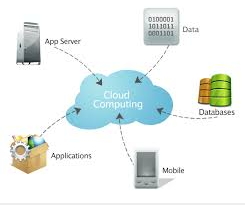
Cloud base is all the buzz now. What it means is that your information is stored on another computer and generally accesses over the internet.
As a company, we have no views on the subject but here is a discussion on some of the ramifications for point of sale systems.
Location
The big plus with cloud is that you can be anywhere as long as you have an internet connection you can access your information. It can be a convenient function particularly if you have several locations.

Budgeting
Cloud systems are generally easier to budget. A fixed fee sets much but not all the hardware and technical aid required.
The disadvantages are several.
Complex
A cloud system is more complicated. Generally, they are run a hybrid system which means they are both cloud and local.
Cost
The cloud is dearer as you need to purchase a good internet service. What we recommend an emergency internet connection as well just in case the primary internet goes down and/or a local computer to act as an emergency server in each location.
Security
If you access cloud anywhere for your information, it is almost sure that other people can access it too. You have very little control over how it is stored and where it is stored. You are looking at a legal issue this could be a problem. You have no idea what the cloud provider is doing with your data.
If the cloud provider closes now which I have seen then your data is possibly gone unless you have a backup. If you have a backup, it is generally a new installation to get you up and running if they close down.
Reliability
If something goes wrong with either the internet and/or the cloud provider, then there is often little you can do until they fix it. Now, these both generally claim about a 99.9% reliability. I think these reliabilities are greatly exaggerated What they mean here by reliability is no service, going slow often does not count in this calculation. But let us assume it is true, that means a shop running 363 days a year, 8 hours a day, then it will be down about 6 hours a year. If you have two locations say two shops or a shop and a warehouse, you can double this to 12 hours. If say you ran an average of 10 hours a day your shop and many of my clients would be running more then you could increase this by 25%.
Without emergency systems in place No internet = No business
This would not include going slow and going slow is a significant problem in a cloud. Come for example 6 pm in a residential area, when many people switch on cable TV to watch something, and all the internet in the area runs slow. Instead of processing in a register going beep, beep, beep, it goes beep (wait) , beep (wait) , beep (wait) . Queues are building up.
Speed
Cloud is slower however with our POS system because it uses a good quality SQL you may not notice the speed drop.


